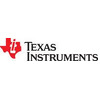Manufacturer Part Number
TLC339IPWR
Manufacturer
Texas Instruments
Introduction
The TLC339IPWR is a quad differential comparator from Texas Instruments, characterized by its LinCMOS™ technology suitable for voltage level sensing and control in a wide array of electronics.
Product Features and Performance
LinCMOS™ technology ensures low power consumption
Four independent comparator elements
Flexible single or dual supply operation from 3V to 16V
Open-drain CMOS output
Low input offset voltage
Ultra-low input bias current
CMRR and PSRR of 84dB provide excellent input noise rejection
Fast propagation delay of up to 4.5µs
Product Advantages
Low quiescent current for power-saving
High current drive output of 20mA
Supports a wide operating temperature range from -40°C to 85°C
Ideal for battery-powered and portable applications due to low power requirements
Enhanced design flexibility through single or dual power supply options
Key Technical Parameters
Number of Elements: 4
Output Type: CMOS, Open-Drain
Voltage - Supply, Single/Dual (±): 3V ~ 16V
Voltage - Input Offset (Max): 5mV @ 10V
Current - Input Bias (Max): 5pA @ 5V
Current - Output (Typ): 20mA
Current - Quiescent (Max): 125µA
CMRR, PSRR (Typ): 84dB CMRR
Propagation Delay (Max): 4.5µs
Operating Temperature: -40°C ~ 85°C
Quality and Safety Features
TLC339IPWR meets high-quality and safety standards as mandated by industry requirements for linear comparators.
Compatibility
Package / Case: 14-TSSOP
Mounting Type: Surface Mount
Supplier Device Package: 14-TSSOP
Application Areas
Industrial instrumentation
Consumer electronics
Data acquisition systems
Communication infrastructure
Automotive safety and control systems
Product Lifecycle
Product Status: Active
TLC339IPWR is not reported as near discontinuation and replacement or upgrade options are available as standard within the industry.
Several Key Reasons to Choose This Product
Energy-efficient operation well-suited for handheld and battery-operated devices
Multiple comparators in one package for compact system designs
Versatile usage in both single and dual voltage environments
Robust performance with a wide operating temperature range for harsh environments
Optimal signal integrity with high common-mode rejection ratio




 TLC3405AES6LT
TLC3405AES6LT TLC336ASTMicroelectronics
TLC336ASTMicroelectronics TLC34076-135FNTexas InstrumentsPALETTE DAC, CMOS
TLC34076-135FNTexas InstrumentsPALETTE DAC, CMOS TLC339CNTexas InstrumentsIC COMPARATOR 4 GEN PUR 14DIP
TLC339CNTexas InstrumentsIC COMPARATOR 4 GEN PUR 14DIP